Health Facts
-
Health Literacy is "the degree to which individuals have the capacity to obtain, process, and understand basic health information and services needed to make appropriate health decisions." This includes how to navigate health care system and communicate with physicians, the communication between patients and providers. Health literacy also includes decision-making skills and the ability to understand medical information and instructions.
Source: http://nnlm.gov/outreach/consumer/hlthlit.html#definitions
-
Nearly all of us, about 9 of every 10 American adults, have some problems with health literacy. Health literacy is not only about reading. It's about understanding difficult health terms and issues. Even highly educated people can have trouble understanding health care information.
Source: http://nnlm.gov/outreach/consumer/hlthlit.html#definitions
-
Patients are often faced with complex information and treatment decisions. Patients need to:
- Access health care services
- Analyze relative risks and benefits
- Calculate dosages
- Communicate with health care providers
- Evaluate information for credibility and quality
- Interpret test results
- Locate health information
Source: http://nnlm.gov/outreach/consumer/hlthlit.html#definitions -
1. What is the test for?
2. How many times have you done this procedure?
3. When will I get the results?
4. Why do I need this treatment?
5. Are there any alternatives?
6. What are the possible complications?
7. Which hospital is best for my needs?
8. How do you spell the name of that drug?
9. Are there any side effects?
10. Will this medicine interact with medicines that I'm already taking?Source: http://www.ahrq.gov/patients-consumers/patient-involvement/ask-your-doctor/10questions.html
Statistics
- Adult Health Literacy by Educational Attainment:
58% - Intermediate Health Literacy with Bachelor’s Degrees or Higher
30% - Proficient Health Literacy with Bachelor’s Degrees or Higher
64% - Intermediate with Other College Attendance or Degree
10% - Proficient with Other College Attendance or Degree - Health Literacy for 16 to 49 year olds – 11% Below Basic, 20% Basic, 56% Intermediate, 13% Proficient
In Partnership with: Poole College of Management, College of Humanities and Social Sciences, National Science Foundation, Penn State
Take Action, Get Tested: Find Your Local Testing Center Why Get Tested?
